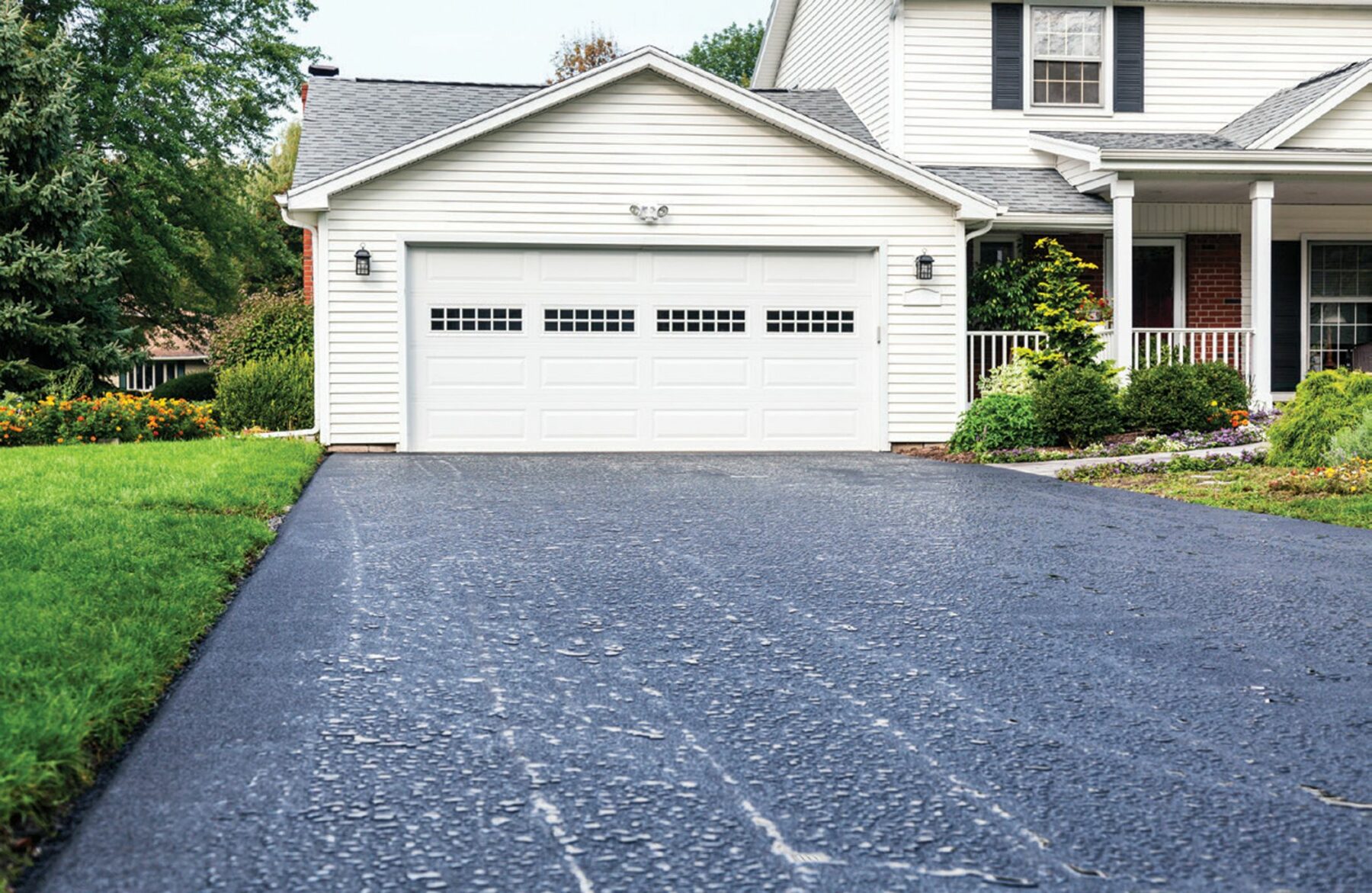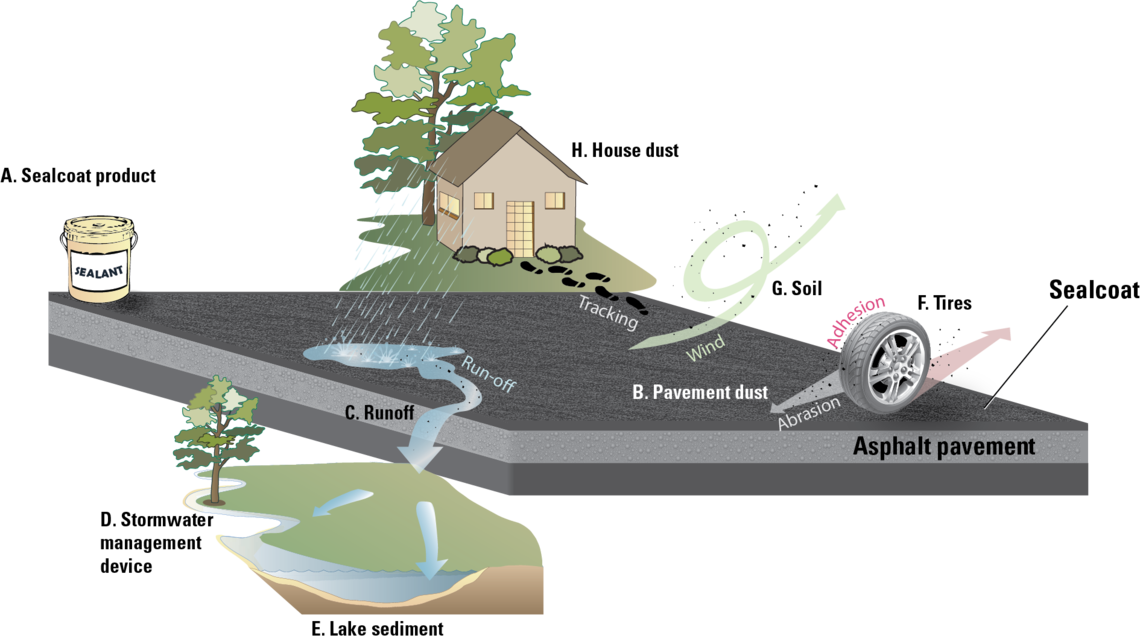
With temperatures warming up, you may be planning to refresh the sealcoat on your driveway or parking lot. As you consider what sealcoat product to use, it is important to be aware of coal tar-based sealcoat products and their impact on water quality! Recent studies have shown that coal-tar based sealcoat products are a major source of polycyclic aromatic hydrocarbons (PAHs) contamination in our urban waterways.
What are Sealcoating and PAHs?
Sealcoating is the process of applying a protective layer on asphalt pavement. It is applied to parking lots of local businesses, apartment complexes, and schools, as well as residential driveways. Most sealcoat products are either asphalt-based or coal tar-based; unfortunately, coal tar-based sealcoats are the leading source of PAH contamination in area waterways. Coal tar-based products contain about 1,000 times more PAHs than asphalt-based ones! To protect watershed health, it is critical to reduce pollution of all kinds; avoiding the use of PAH-rich products will reduce contamination by these damaging chemicals in our streams, rivers, and lakes.PAHs are a group of chemicals that result from the burning of carbon-rich products like motor oil, gas, and coal. Some of these products produce greater PAH levels than others, ranging from asphalt (2-9 mg/kg), to tire particles (84 mg/kg), and coal tar-based sealcoats (34,000-202,000 mg/kg). Several PAHs are carcinogenic, with well-documented negative impacts on aquatic life, including fish, birds, and amphibians. The damaging effects of PAH exposure in these organisms include increased mortality, tumors, and birth defects. Not surprisingly, PAHs are also linked to harmful effects on human health such as increased likelihood of cardiovascular and autoimmune diseases.

How do PAHs Enter Our Waterways?
PAH particles can be transported by rain, wind, car tires, and even from our shoes walking on pavement. Stormwater runoff carries PAH particles from the parking lot/road surfaces into nearby streams, rivers, or lakes. PAHs attach readily to sediment particles, leading to high levels of PAH at the bottom of waterways. It has been demonstrated that water running off a coal-tar sealcoat parking lot yields 65 times more PAH concentrations than an unsealed parking lot. There are also air quality concerns, since freshly coal-tar sealed pavement releases tens of thousands more PAHs to the atmosphere than unsealed pavement. The Central Asheville Watershed Study identified PAHs as a water quality issue in Bacoate Branch and Town (Nasty) Branch.
What Can We Do to Reduce PAH Pollution?
- Use asphalt, acrylic, or latex-based sealcoat products! They are a safer alternative and contain smaller amounts of PAHs.
- If you plan to sealcoat your own driveway, check out companies like Lowes, Home Depot, and Ace Hardware. They offer a variety of asphalt sealcoat products and no longer sell coal tar-based sealcoat products. You can also check the Material Safety Data Sheet to avoid products containing coal tar; refined coal tar, or coal tar pitch.
- For those planning to hire a sealcoat contractor, request using asphalt-based or latex-based products. Also specify that the sealcoating product be free of coal tar; refined coal tar, or coal tar pitch.
- Advocate for a local ordinance banning coal tar and other high PAH sealcoats within your municipality! Currently, there are 13 states (including Texas, Minnesota, New York, and North Carolina) with local government ordinances to prohibit the use of coal tar-based sealcoat products. In North Carolina, the Town of Matthews, the Town of Boone, and Mecklenburg County have passed ordinances to prohibit/restrict the use of coal tar-based sealcoat products.
Check out these other cool resources on PAHs, coal tar sealcoat, and effects on water quality:
